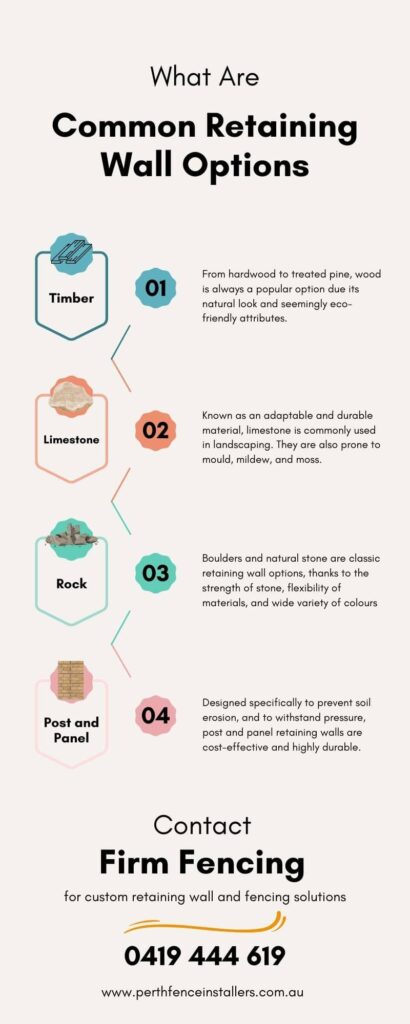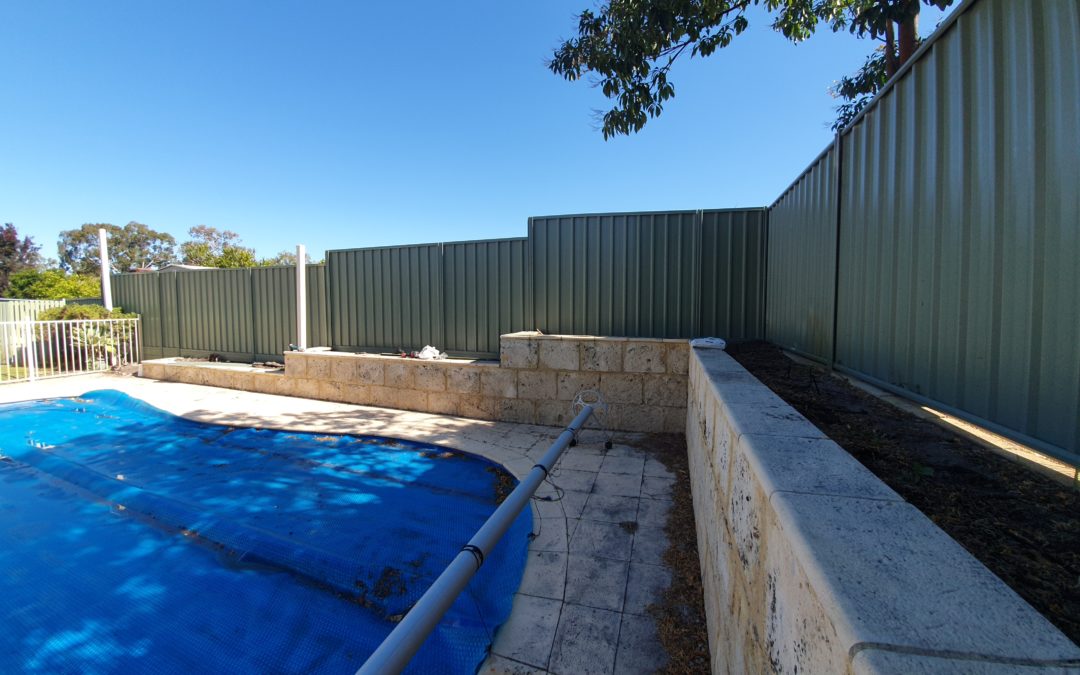If your property varies in height from your neighbours, panel and post retaining walls are a must. Any land that’s higher or lower than the plot next door is at risk of disturbance from shifting earth, and a solid retaining fence is the only solution.
Whether you’re a new homeowner or your property’s garden is undergoing redevelopment, installing sturdy retaining walls are essential to not only prevent soil erosion, but keep your yard level and house foundation firmly intact.
The following guide outlines the importance of retaining walls made from durable materials, and why neglecting to install a structurally sound wall runs the risk of weakening your home’s foundation.
What is a retaining wall and its uses/benefits?
Retaining walls are fencing structures that prevent soil from higher ground from falling down onto the neighbouring lower ground due to water or foot traffic. Traditional retaining walls were made from brick or poured concrete, and required deep foundations to prevent the weight of the soil moving its positioning over time.
Walls or fences surrounding a home serve multiple purposes, from keeping intruders out to ensuring your friends and family are safe inside. Adding a retaining wall adds further benefits, one of which is preventing the erosion of soil and vegetation and plants getting damaged.
Whether you opt for an aluminium or post and panel retaining wall, the results are reinforced and therefore highly durable. The minimal maintenance required over time makes them highly cost-effective, and a professional installation means they can last decades.
What are the common retaining wall options?
A retaining fence or wall is available in multiple options, and each material offers its own benefits. Traditional retaining walls, and the cheapest option, is poured concrete or concrete blocks, but new advances in development have created longer-lasting and more reliable alternatives like aluminium.
Timber
From hardwood to treated pine, wood is always a popular option due its natural look and seemingly eco-friendly attributes. However, timber retaining walls are susceptible to rot and erosion over time.
Limestone
Known as an adaptable and durable material, limestone is commonly used in landscaping across WA. Suitable in particular for higher walls, they are also prone to mould, mildew, and moss.
Rock
Boulders and natural stone are classic retaining wall options, thanks to the strength of stone, flexibility of materials, and the wide variety of colours available. However without a solid foundation or steel reinforcement they are prone to leaning over time.
Post and Panel
Designed specifically to prevent soil erosion, and to withstand pressure from varying levels of earth, post and panel retaining walls are cost effective and highly durable. The galvanised steel frame is encased in concrete to prevent corrosion, and the effective design prevents shifting, making them a close second to a durable aluminium retaining wall.
Aluminium retaining walls, what it is, how it is made
Booming in popularity thanks to their sleek narrow design, durable means, and aesthetic appeal, aluminium slat fencing & Aluminium retaining walls are ideal for those with extreme differences in soil height, or anyone in a high-density area.
Utilising a tough interlocking system that prevents the heavy pressure from neighbouring soil to budge its structure, its durable nature is complimented by an impressively compact design. Aluminium is anti-corrosive and repels rot, and the addition of a quality powder coat finish makes it ideal for outdoor use as garden edging, or a custom engineered retaining wall system.
Why choose Firm Fencing for your retaining wall needs
Fencing Perth have been working with our valued commercial and residential clients for over 20 years, providing top quality custom retaining wall and fencing solutions for a wide range of applications.
Contact us today to discuss a free quote for your aluminium retaining or post and panel retaining walls.


